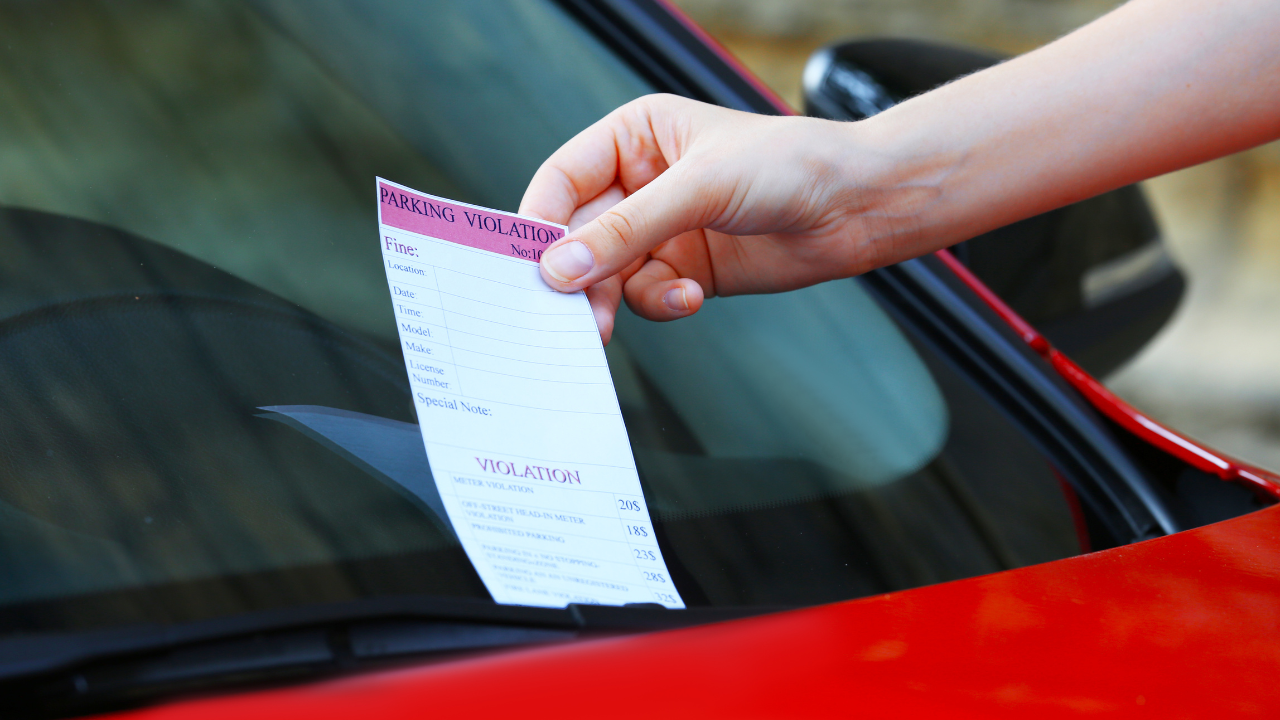Understanding the Impact of Minor Parking Tickets on Your I-485 Application and Citizenship Process
When applying for permanent residency through the I-485 form or preparing to file your N-400 application for naturalization, applicants often worry about how previous traffic tickets and minor infractions might affect their case. In particular, the question arises: will forgetting to list minor parking tickets on your I-485 application harm your chances for citizenship? This article aims to provide comprehensive guidance on how USCIS views such infractions, the importance of honesty, and how to handle any omissions related to minor parking citations.
What Constitutes a Minor Parking Ticket?
Minor parking tickets typically refer to civil infractions such as expired meters, parking in prohibited zones, or failing to display a parking permit. Unlike criminal offenses, these are non-criminal violations that generally carry fines but do not lead to jail time or criminal records. It is essential to recognize that while these tickets are legal violations, they do not constitute crimes and therefore have limited impact on immigration applications, especially when it comes to assessing good moral character.
How Does USCIS View Parking Tickets on Immigration Forms?
The United States Citizenship and Immigration Services (USCIS) carefully evaluates an applicant’s background, focusing mainly on honesty, moral character, and any serious criminal conduct. Minor civil infractions such as parking tickets hold little to no weight in eligibility determinations. USCIS instructions for Form I-485 explicitly require disclosure of arrests, convictions, and other serious legal issues, not minor parking violations.
If you inadvertently failed to list minor parking tickets on your I-485 application, this omission will not typically be grounds to deny your application or suggest bad moral character. USCIS understands that small oversights happen, especially when they involve civil rather than criminal matters.
Honesty and Good Moral Character: The Cornerstones
Honesty is a cornerstone of any successful immigration application. The agency places significant emphasis on good moral character, which is demonstrated by truthfulness and compliance with laws. It is important to note that honesty about your past — even if it includes errors or oversights — often weighs more heavily than minor mistakes themselves.
Disclosing your minor parking tickets on your subsequent N-400 application or in any interviews reflects transparency. Since naturalization applicants must show good moral character for five years (or three years for certain cases), being forthcoming about these issues, however minor, strengthens your credibility.
Steps to Take If You Forgot to List Parking Tickets on Your I-485
If you forgot to include minor parking tickets in your initial I-485 application, do not panic. Here are practical steps to mitigate concerns:
- When preparing your N-400 application for citizenship, disclose all parking tickets that you previously omitted.
- Provide an honest explanation stating you did not realize these minor civil infractions were required to be listed on the I-485.
- Show evidence that all fines were paid timely, bringing documentation such as receipts or payment confirmations to interviews or appointments, if possible.
- Demonstrate awareness and responsibility toward legal obligations, emphasizing your commitment to compliance moving forward.
- Consult with an immigration attorney to prepare your case and ensure accurate disclosure of all pertinent information.
Why Minor Parking Tickets Don’t Affect Eligibility or Good Moral Character
Parking tickets are classified as civil infractions and represent a different category from criminal offenses, which directly impact the assessment of good moral character. Despite being violations of traffic laws, these minor citations do not constitute moral turpitude or serious misconduct under immigration law. USCIS carefully distinguishes between these categories when reviewing applications.
Because parking tickets are common and usually handled promptly through payment, USCIS regards them as inconsequential to an applicant’s moral standing. In contrast, intentional dishonesty or criminal behavior have substantial consequences.
Transparency on the N-400 Naturalization Application
When filing for naturalization using Form N-400, applicants must answer questions related to arrests, charges, and convictions. Here, disclosing even minor infractions including parking tickets — if applicable — is a gesture of good faith. The more transparent you are, the less likely you will face issues related to misrepresentation.
Discussing the minor parking violations openly and providing proof of payment can reassure USCIS of your reliability and commitment to comply with the law. This is especially important if you omitted these details in your I-485 application, as it reflects you are making corrections and acting in good faith.
Common Concerns Applicants Have Regarding Parking Tickets
- Will parking tickets lead to denial of my green card or citizenship?
- Do I have to list all parking tickets, no matter how old?
- What if I have unpaid parking tickets?
- Can forgetting to list parking tickets be viewed as dishonesty?
- Should I provide proof of payment during interviews?
The answer to these concerns is reassuring: minor parking tickets do not directly cause denial, especially when paid and disclosed. Older parking tickets that have been resolved similarly carry no weight. Unpaid tickets should be addressed promptly to avoid any complications. Honesty can be demonstrated by revealing and explaining any omissions, and bringing proof helps establish your good intent.
Legal and Practical Advice for USCIS Applicants
Legal experts emphasize that while it is best to be as comprehensive and accurate as possible on immigration forms, minor civil infractions like parking tickets do not need the same level of scrutiny as criminal records. If you suspect an omission, correct it at the earliest opportunity by disclosing the information fully.
Consider these practical tips:
- Keep a record of all fines and payments related to parking and civil infractions.
- Consult with an immigration attorney to verify what needs to be disclosed for your specific situation.
- Avoid accumulating unpaid tickets that might escalate into more serious issues.
- At interviews or appointments, respond honestly and provide documentation if requested.
The Importance of Moral Character in Citizenship
USCIS’s evaluation of moral character examines a person’s behavior over the statutory period before filing for naturalization. This includes avoiding serious crimes, paying taxes, registering for selective service when required, and generally following the law. Minor parking tickets are generally not considered when assessing moral character.
Displaying honesty by admitting past mistakes, even minor ones, demonstrates maturity and responsibility. USCIS officers look for patterns of behavior that show respect for the law rather than isolated incidents.
Scenario Analysis: Real-Life Examples
Consider an applicant who paid all parking tickets promptly but forgot to list them on the I-485. When filing the N-400, the applicant discloses all tickets and explains the oversight. With supporting evidence like payment receipts, the applicant shows good faith. In this situation, USCIS is unlikely to deny naturalization based on minor parking tickets or the prior omission.
In contrast, an applicant with unpaid parking tickets who conceals them may face questions about compliance with laws. However, even unpaid tickets by themselves do not equal lack of moral character, but failing to disclose serious offenses or criminal behavior would cause more serious problems.
Addressing Omissions When Notified by USCIS
If USCIS issues a Request for Evidence (RFE) or Notice of Intent to Deny (NOID) regarding missing information about minor parking tickets, applicants should respond promptly with full explanations and supporting documents. Clear communication and demonstrable responsibility can help resolve potential issues.
Legal counsel can assist in crafting responses that affirm your eligibility and show that such minor infractions do not undermine your moral character.
Conclusion and Final Recommendations
Minor parking tickets are civil infractions that do not harm your eligibility for permanent residency or citizenship. USCIS distinguishes between criminal conduct and minor traffic violations when assessing moral character.
Honesty and transparency are crucial. Disclosing previously omitted parking tickets on your N-400 shows good faith and a responsible approach. Bringing proof of payment further supports your case.
Applicants should focus on compliance with the law overall and consult with legal experts if uncertainties arise.
Legal MarketPlace КОНСУЛЬТАНТ — your trusted partner in comprehensive legal support for immigration and citizenship cases. Our expertise ensures your applications are accurate, transparent, and compliant with USCIS requirements.































